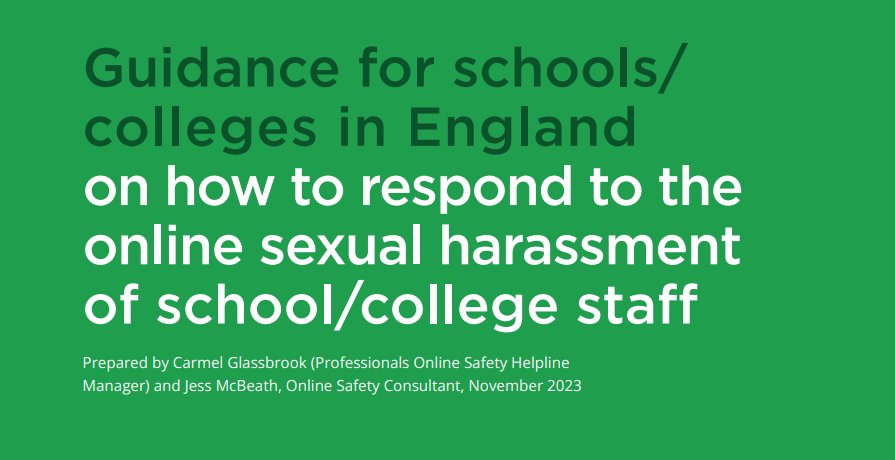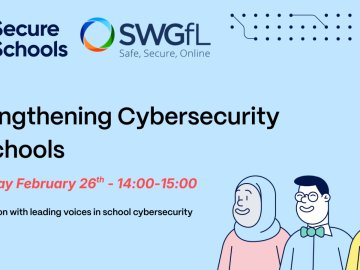The Professionals Online Safety Helpline has released new guidance to support schools and colleges in England on How to Respond to the Online Sexual Harassment of Staff.
The latest guidance, prepared by Carmel Glassbrook (Professionals Online Safety Helpline Manager) and Jess McBeath, Online Safety Consultant, refers to information published by the Department for Education and is intended to be used by school/colleges leaders, governors, federations, and trust leaders in England.
The guidance is broken into three parts suggesting actions to address the online element of sexual harassment or abuse, as well as any possible wider issues, covering the following:
- Responding to incidents
- Preventing online sexual abuse and harassment
- Guidance for staff.
You can download the latest sexual harassment guidance below, or read on to find out more about examples of online sexual harassment and how to get support.
View the How to Respond to the Online Sexual Harassment of School/College Staff Guidance
What is Online Sexual Harassment?
The guidance explains that online sexual harassment is unwanted sexual contact on a digital device that negatively impacts another person, with sexual harassment being a form of unlawful discrimination under the Equality Act 2010.
Examples of online sexual harassment can include:
- Sending or requesting unwanted sexualised messages.
- Sharing unsolicited intimate imagery and/or requesting intimate imagery.
- Leaving sexualised or sexually suggestive comments on someone’s online content.
- Sharing photos/videos/livestreaming without a person’s permission with a sexual connotation/observation.
- Doctoring/editing imagery to make people appear to be in intimate or in sexually suggestive
- situations.
- Sexualised insults, name-calling or spreading rumours online.
- The taking, sharing or storing of intimate imagery without consent (down blousing/upskirting), or doctoring/editing imagery to appear sexualised.
- Online stalking, including persistently following or messaging someone, adding them to a group or creating fake profiles to hide identity in order to add/follow.
- Sharing of any sexually explicit imagery over the internet or in person, without necessary reason (necessary reasons may include helping remove content in sexting incidents between pupils, or to show an injury).
- Threatening to do any of the above.
Accessing Support
Alongside the latest sexual harassment guidance, the Professionals Online Safety Helpline provides a series of resources to support educators or professionals working with young people. Recent resources include support around making reports to social media platforms, how to handle impersonation attempts, and what to do following an incident of sexting.
Alongside this, any professional working with young people can get support with their online safety concerns by contacting the Professionals Online Safety Helpline. The Helpline can be contacted by emailing helpline@saferinternet.org.uk or by calling 0344 381 4772.
Visit the Professionals Online Safety Helpline.






